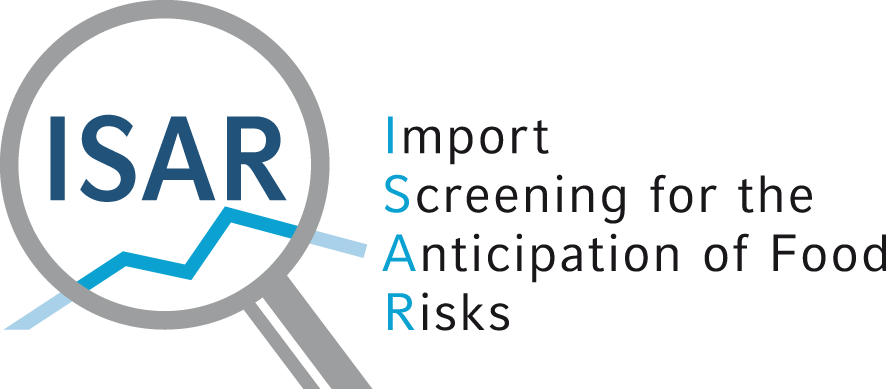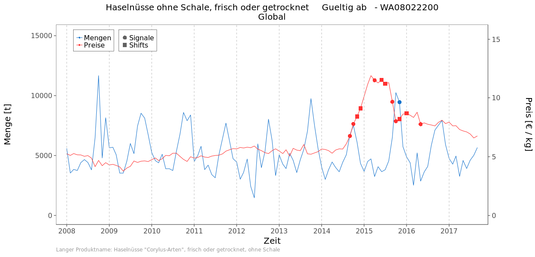ISAR - On the trail of food fraud

Together with experts from the Bavarian State Office for Health and Food Safety (LGL Bayern), we have developed the screening method ISAR (Import Screening for the Anticipation of food Risks). This method helps to identify health risks and fraud potential in food as early as possible and on the basis of an automated evaluation of food import data. The project is now being expanded through several years of cooperation with the German Federal Office of Consumer Protection and Food Safety (BVL). The aim is to refine the methodology of the approach and to further develop the associated software solution.
Background
The developed statistical method is based on the basic idea and conception of the LGL of an early warning system based on a goods flow analysis. The method has been used at the LGL since 2016. The background is that, among other things, crop failures or changes in demand can cause strong price fluctuations for food products. This can lead to fraud incentives, as sometimes considerable profit margins can be achieved by incorrectly declaring food: for example, attempts are made to replace expensive ingredients with similar but cheaper ones without labelling them. For consumers, this can also be a health hazard under certain circumstances. Changes in the origin of food can also pose a risk, for example if the products originally come increasingly from regions with high environmental pollution or poor hygiene standards.
Statistical approach
The statistical early warning system records systematic changes in prices and quantities of food imports and relates them to the country of origin. For this purpose, 134,000 data records of the foreign trade statistics of the Federal Statistical Office are currently automatically evaluated every month and checked for anomalies using methods of statistical time series analysis. If, for example, the actual price development is higher than expected, this can be a signal for a higher probability of fraud. In addition to short-term abrupt changes ("signals"), the time series are also examined for longer-term changes ("level shifts"). A Statistical Consulting project provided the first approaches for the development of the method. Subsequently, both the methodological approach and the interactive user interface created with the help of the "shiny" R package were further elaborated.

The new approach has already proven itself for the LGL. Employees became aware of an abrupt increase in imports of melon seeds, which tripled from 2015 to 2016 to around 600 tons, while Syria became the new main source of supply at the same time. On the basis of these results and technical considerations, investigations were carried out which finally resulted in harmful amounts of the mold poison aflatoxin in almost half of the samples examined. The foodstuffs complained of were immediately withdrawn from the market and the danger to consumers was contained. The crop failure of hazelnuts in Turkey in 2014, which led to numerous product falsifications, is another example of how food fraud can be detected by analysing trade prices and goods flows (see figure).
Links
- The publication related to the project
- LMU press release at the start of the current project
- The early warning system at the LGL in Bavaria: #1 and #2 (p.49)

